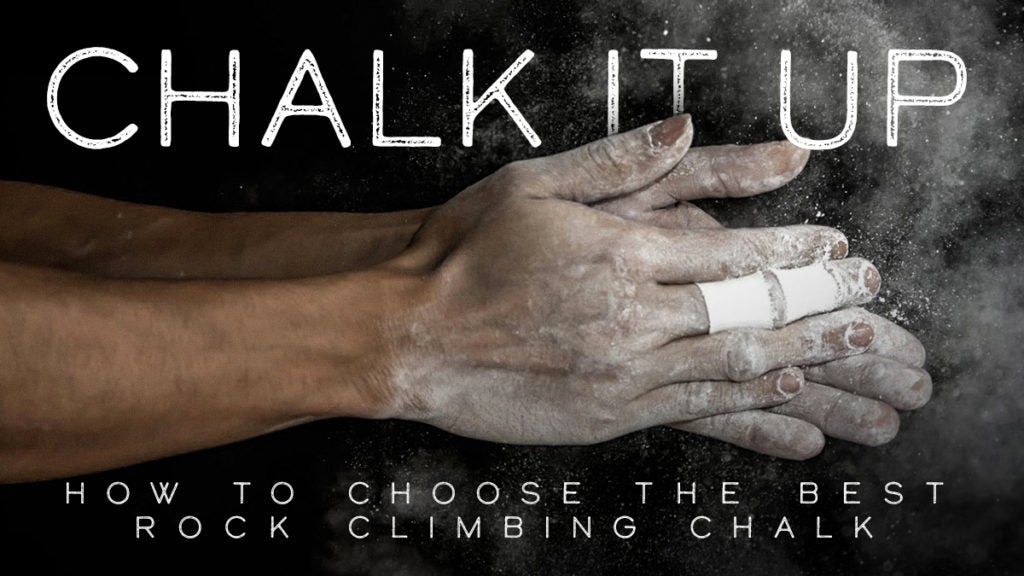Chalk It Up: How to Choose the Best Rock Climbing Chalk

So many hobbies people love to do can keep them active, healthy, and engaged. Rock climbing has been around for ages, reigning supreme as one of the most popular fitness and leisure activities.
Everyone has different reasons for rock climbing, so we don’t need to explore the many benefits of climbing. We do, however, need to spend some time on equipment.
If you don’t have the right equipment, climbing may not be as enjoyable as possible. Having the best climbing chalk can help enhance your climbing experience. That’s why we’re here to help you find climbing chalk you’ll love.
If you’re ready to have rock climbing chalk, you can recommend it to beginners and hardcore climbing enthusiasts. Read on to learn more.
Know Your Chalk Types
To choose rock climbing chalk that fits your unique needs, you’ll need to learn about the type of climbing chalk available.
Block Chalk
Block chalk is pure chalk that comes in a large hunk. Some people choose to go for block chalk to save money, but there’s a significant climbing benefit that comes with using blocks.
When you use block chalk, you can crush it to your preferred consistency. It also helps make transporting the chalk easier.
Loose Chalk
Loose chalk is a mixture of pure chalk, regular chalk, and a combination of drying agents.
Some people like loose chalk because there’s no need to ground the chalk. It’s already done for you.
If you’re concerned about consistency, you’ll have plenty of choices if you choose loose chalk. Many brands offer a selection of finer chalk and coarser grinds.
Eco Chalk
Are you concerned about the environmental impact of chalk?
Some climbers don’t like visually staining rocks with chalk. Eco chalk is colorless and only consists of a clear drying agent.
This is an excellent choice for climbers that go to gyms or areas where traditional chalk use is banned.
Liquid Chalk
Liquid chalk is a blend of alcohol and chalk that quickly dries once you apply it to your hands.
This may be the best chalk choice if you’re a tidy climber or have problems with particulate matter. It keeps chalk dust and marks to a minimum, and you’ll need a smaller bag for transport.
The Best Climbing Chalk: What to Consider
Finding the right climbing chalk isn’t just having something fun to show off to fellow climbers. Because chalk helps with grip, having the right chalk can be a matter of safety.
As accidents go up, having the right chalk and equipment is more important than ever.
If you want to have the best climbing chalk, make sure you follow these tips.
Ease of Use
Ideally, you will put on a good thick layer of chalk before climbing, but you may need to add more as your climbs get longer and higher.
You’re going to want chalk that’s easy to access and apply. Think about your climbing style and what kind of chalk would be the simplest to use during a climb.
Comfort
The feeling of chalk on your hands can take some time to get used to. You’ll want to choose chalk that feels the most comfortable on your skin.
Rougher chalk may give you a better grip, but it could be too harsh on beginner’s hands. You may want to start with something smooth and simple when climbing.
Price
When you’ve already paid a lot of money for the best climbing gear, thinking about the small-dollar difference between chalk brands may seem silly. But it’s always important to consider the price when buying climbing chalk.
If your main concern is price, always go for block chalk because it tends to be cheaper than other kinds.
Step Up Your Climbing Game
Since you know how to find the best climbing chalk, it’s time for you to know how to use climbing chalk the right way.
Do you ever wonder what separates beginners from the more advanced climbers? It’s all about technique; we will show you how to improve yours.
Check out our post on climbing techniques on the blog.





